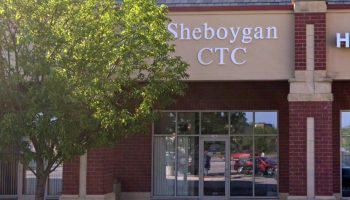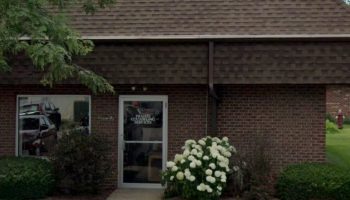Mooring House, Division of Apricity
About Mooring House, Division of Apricity
Founded in 1978, The Mooring Programs is an established nonprofit organization that includes both a men’s and women’s drug rehab facility. This particular location is the site of Mooring House, the men’s facility in Appleton, Wisconsin. It’s a state-certified residential treatment center, and accepts various private insurance providers, as well as self-pay, county and tribal funding, state funding, Medicaid, and Employee Assistance Programs (EAP).
A Residential Drug Rehab For Men North of Lake Winnebago
This facility provides inpatient addiction treatment services under an organization known as Apricity. Here, residents are made to feel right at home, in a space that encourages a sense of safety and comfort that are crucial for a successful recovery.
The facility is staffed 24/7, and residents can benefit from structured ‘drop-off’ times in which friends, family, and loved ones can check-in and bring you any personal belongings you wish to have with you while in treatment.
About the Treatment Approach and Facility Features
The facility features 19 single bedrooms, so you can benefit from a private space in which to sleep and spend your downtime. On-site laundry services are also provided, along with a fully equipped kitchen with all meals and snacks included to fuel your recovery.
There’s also a games room with pool tables, ping pong, and foosball to enjoy with fellow residents and an outdoor fire pit for those warmer spring and summer nights. You’ll also have convenient access to valley transit from this location which is ideal.
As for the kinds of treatment styles you can expect here, medication-assisted treatment (MAT) is available to support you in managing withdrawal symptoms and cravings. This is typically paired with therapy, of which several styles and modalities are offered here.
Besides individual and group sessions, you might engage in modalities like Cognitive-behavioral therapy (CBT), Motivational Interviewing (MI), and other methods. Alternative support activities here also include art and music sessions, meditation, as well as physical and breathing exercises.
| Levels of Care | Detox Service Setting | Programs | Payment Options |
|---|---|---|---|
|
Inpatient and residential programs provide round-the-clock medical and emotional support as you live at the treatment facility. This level of care may be recommended if you have severe addictions or mental health conditions since it removes outside distractions and allows you to focus solely on therapy. |
Aftercare programs provide ongoing support after you complete a rehab program. They may include several components to help you maintain sobriety including therapy, community support groups and relapse prevention strategies. This gives you a network of resources as you reintegrate into your daily life. |
||
|
Inpatient detox occurs in a dedicated treatment facility. You’ll live there around the clock and receive intensive medical support and supervision to help manage your withdrawal symptoms. It is suitable for individuals with moderate to severe addictions as it ensures a stable detox environment. |
|||
|
Adult programs address the substance use and life challenges specific to adults. Therapists can deliver sessions in individual, group and family settings. Services often include job support and life skills training in a structured environment. |
Young adult programs are designed for individuals who are transitioning into adulthood. Topics of discussion typically include identity, independence and peer relationships. Providers may also offer life skills training and career support. |
Men's programs address substance use while also considering the social pressures, family roles and mental health concerns that are specific to men. You’ll learn healthy coping mechanisms as you build emotional resilience and develop communication skills. |
|
|
Self Pay
|
Private Insurance
|
Levels of Care
Inpatient and residential programs provide round-the-clock medical and emotional support as you live at the treatment facility. This level of care may be recommended if you have severe addictions or mental health conditions since it removes outside distractions and allows you to focus solely on therapy.
Aftercare programs provide ongoing support after you complete a rehab program. They may include several components to help you maintain sobriety including therapy, community support groups and relapse prevention strategies. This gives you a network of resources as you reintegrate into your daily life.
Detox Service Setting
Inpatient detox occurs in a dedicated treatment facility. You’ll live there around the clock and receive intensive medical support and supervision to help manage your withdrawal symptoms. It is suitable for individuals with moderate to severe addictions as it ensures a stable detox environment.
Programs
Adult programs address the substance use and life challenges specific to adults. Therapists can deliver sessions in individual, group and family settings. Services often include job support and life skills training in a structured environment.
Young adult programs are designed for individuals who are transitioning into adulthood. Topics of discussion typically include identity, independence and peer relationships. Providers may also offer life skills training and career support.
Men's programs address substance use while also considering the social pressures, family roles and mental health concerns that are specific to men. You’ll learn healthy coping mechanisms as you build emotional resilience and develop communication skills.
Amenities
Contact

Lauren wears many hats, and works as a holistic deep tissue massage therapist, content strategist, and copywriter. She’s been writing copy and dreaming up content for a number of brands for almost 10 years, having worked with a mixture of B2B and B2C brand. Some of her more notable clients include adidas, Gucci, Pepsi, and Hotels.com. A skilled editor and copywriter, she also enjoys planning content for social media and brand marketing campaigns.

Courtney Myers writes and edits professionally from her home in North Carolina. She holds an MS in Technical Communication from N.C. State University and has worked in proposal management, marketing, and online content creation. She specializes in creating resources related to behavioral health and addiction recovery.




